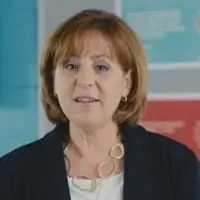 | 1 LU |
 | 1 LU |
Teaching is hard work and effective change takes time.
Designing teaching and learning environments that can achieve equitable outcomes for all types of learners is a complex challenge. How can we reimagine the built environment with multiple uses and flexibility to support effective classroom practices using the Universal Design for Learning (UDL) framework?
Together we will explore the UDL framework to improve and optimize teaching and learning for all people based on scientific insights into how humans learn. The guidelines offer a set of concrete suggestions that may be applied to ensure that all learners can access and participate in meaningful and challenging learning opportunities. Design drivers will be identified in the context of designing brave places that create spaces with meaning to provide the psychological safety required for students to be inspired, motivated, and invited to be empowered as co-constructors of their learning communities and risk takers in their learning pathways. Participants will be encouraged to consider the design of multimodal settings that are comfortable, appealing, and allow freedom of movement and circulation as systemic barriers that result in inequitable learning opportunities and outcomes are addressed.
Learning Objectives:

Nicole is founder and CEO of Lessoncast, global expert in Universal Design for Learning, and author of Supercharge Your Professional Learning. She also leads the Jumpstart PD Network and hosts the podcast Did We Learn Anything. Nicole is a former teacher, supervisor of parent support services, principal and system-wide coordinator of PD, leading training for Baltimore County Public Schools, and faculty member for Johns Hopkins University School of Education.

Marisa is a passionate, innovative, education and design thinking professional. Her extensive experience as a certified teacher, school administrator and principal education consultant support her interactions with cross functional teams developing and implementing more learner-centric environments. Marisa has developed and facilitated participation in a variety of professional learning events both nationally and internationally that support faculty effectiveness, transforming school culture, and evolving student skill sets in learner-centric environments.
This track addresses the Response to real-world events and experiences that impact our daily life and our ability to function normally and be productive. The response to these occurrences is reflected in the learning environments we create and leads to the question – how can schools respond to real-world crises in a way that supports the well-being of occupants and our students' learning journey? How do we respond with approaches and strategies that may be used to balance the inability and lack of needed financial resources to address deficiencies within our learning environments’ infrastructure? Topics expand on the Art approach to the theme, but also include Science in the form of findings and outcomes through case studies and examples of successful responses to real-world conditions and events such as the COVID-19 pandemic, climate change, declining student enrollment, economics, equity, and other topics.
Primary Core Competency
Design of Educational Facilities: Acts as a resource to the design team in providing ongoing guidance and support to ensure that the emerging and ultimate design aligns with the established community vision, education goals, future programming, written design standards, best/next practices and education policy.